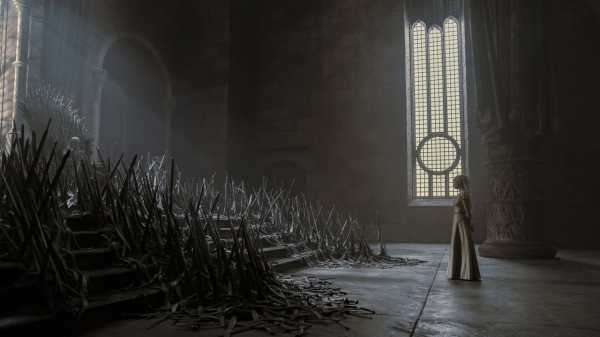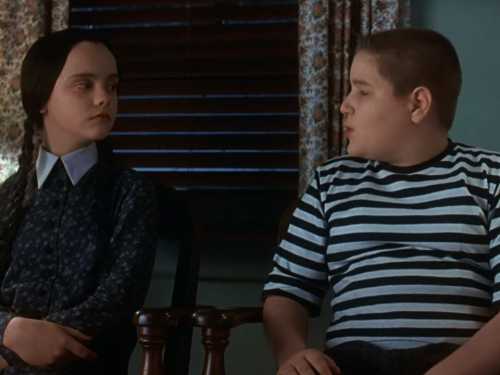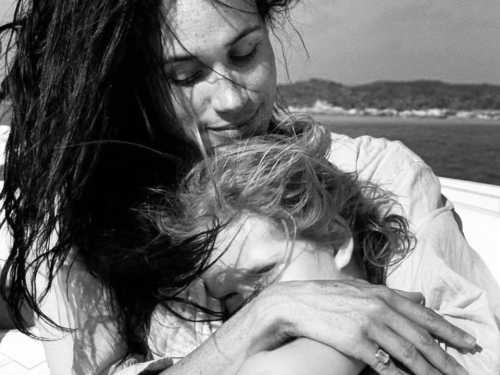
A new “Game of Thrones” show, in the year of our anxieties 2022, has arrived to ferry us away from our long winter of “Thrones”-lessness. Do we want to go where it’s taking us? “House of the Dragon,” HBO’s lavish prequel series based on George R. R. Martin’s “Fire and Blood,” tells the story of House Targaryen in an era well before our old friends showed up—a hundred and seventy-two years before the death of the Mad King, the opening titles inform us, and the birth of his daughter Daenerys Targaryen. Life in year 172 B.D.T., as I call it, looks familiar: dusty-colored cities and palaces, chandeliers that resemble bonfires, eerily towheaded ruling families, the occasional orgy. (Too occasional, perhaps—the show’s ratio of violence to debauchery would do well to be adjusted.) As ever, there’s a succession crisis, and, when an HBO series is driven by a succession crisis, just sit back and observe the infighting: we’ve got hours of high-powered treachery to enjoy, or endure.
“Dragon” swiftly provides some of the old “Thrones” pleasures. The show opens not with a grim ice-monster sequence, as “Thrones” did—hat tip to that—but with the announcement, in a grand hall, of Prince Viserys (Paddy Considine) as the next king. The action skips ahead, nine years into Viserys’s reign, when, after a charmingly familiar credit sequence—no maps, just an amulet, and the comforting pounding of drums in classic Ramin Djawadi style—an aerial symphony of clouds and the flap of leathery wings bring us swooping over the Red Keep, in King’s Landing. The king’s teen daughter, the sharp-featured and extremely Daenerys-like Rhaenyra Targaryen (Milly Alcock), has just borrowed the family car, a dragon named Syrax; she dismounts with plucky nonchalance. “Try not to look so relieved,” she tells a grizzled old knight, tossing her blond braid and removing her driving gloves.
“Every time that golden beast brings you back unspoiled, it saves my head from a spike,” he replies. Aw, heads on spikes—how we’ve missed you, Westeros! Inside the palace, Rhaenyra and her friend Alicent Hightower visit the hugely pregnant queen (“This discomfort is how we serve the realm,” she says, proud and grim), and then Rhaenyra zips off to a meeting of the king and his advisers, where, as she pours water for them, undercover-Arya style, she listens to the proceedings: reports that begin “We’ve all been poring over the moon charts”; a discussion of a pirate-punishing madman called the Crabfeeder. (Crustaceans are to this series as leeches were to Melisandre in “Thrones”: revolting and pivotal.)
The episode gives us glimmerings of interesting character development: Alcock does a masterly job of conveying Rhaenyra’s intelligence and her conflicted position as a capable but underestimated princess; Considine gestures toward a Ned Stark-like warmth and strength, alongside mild regal ineptitude. (He likes to postpone important decisions, and loves to tend to his massive sandcastle-like model of the city, pondering over it like a model-train geek.) There’s a fleet of nostalgia-inducing details: the ridiculous, sword-crazy Iron Throne, a poetic young soul named Samwell, the majesty of soaring, roaring C.G.I. dragons. (Did they always sound so Wookiee-like?) And it’s hard not to love a show in which hundreds of flickering votive candles surround not rose petals and a proposal but a dragon skull the size of a Humvee. But “Dragon” ’s world-building lacks some narrative basics that could vastly improve it: sparks of young love, intriguing or amusing unconventional friendships, well-planted seeds that bear appealing fruit. There’s funny dialogue, but mostly of the unintentional variety: “Laughing with your whores and your lickspittles!” the king yells to a relative, in a rage. Tyrion Lannister he’s not.
That relative is Daemon Targaryen (Matt Smith), Viserys’s ambitious, ne’er-do-well younger brother. Like Rhaenyra, he’s a dragon rider—not just anybody can pilot those things—and, also like her, he’s a possible contender for the Iron Throne. The Daemon-Rhaenyra dynamic, and Daemon’s flaxen wig and eyes narrowed in constant scheming, recalls the Targaryens we know best: Daenerys and her brother, also named Viserys, whose death in “Thrones” involved our rejoicing while he encountered a faceful of molten gold. Daemon isn’t as urgently repulsive, so far, but we get why nobody wants him to be king; his bad-vibes orgies are just the tip of the bad-vibes iceberg.
King Viserys, meanwhile, wants what all kings want: a male heir. When his wife is in labor and he whispers “I love you” over her pregnant belly, we feel a prickle of unease: it’s all about the baby, and it’s starting to feel like the Tower of London around here. The show proceeds, with proud ham-fistedness, to juxtapose the childbirth scene with action sequences from a jousting match; both reveal recklessness with lives in the pursuit of power, and not in a fun way. By the episode’s end, the heir problem still hasn’t been resolved, and its dimensions have approached Shakespearean tragedy.
“Game of Thrones,” for all its flaws, was a Sunday-night treasure for a reason: its wild inventiveness and beauty, its overstuffed intrigue and action, its humor, its characters. It was also one of the last sparks of American monoculture, a phenomenon that managed to bring millions together, all at once, to eagerly discuss a scene or detail: Jaime waving goodbye to Brienne of Tarth, the emergence of a missing direwolf, the thrilling flight of a jerk through the Moon Door. The show began in 2011, carried us into the Trump years, provided welcome distraction, and ended in 2019, before the pandemic. It’s hard not to approach “Dragon” not just with “Thrones” nostalgia but with before-times nostalgia—we want to summon the innocent escapism of those years, back when we revelled in Arya’s face masks and Hot Pie’s bread loaf.
Will “House of the Dragon” have us obsessing about the Crabfeeder? Some tinkering would help its chances. Like the infamous final season of “Thrones,” “Dragon” doesn’t always make the most of its story’s assets. Women, for example: despite the glamour of Rhaenyra’s dragon piloting, the show highlights the misery of its female characters more effectively than their individuality and spirit. The series’s emphasis on succession results in childbirth scenes whose frequency (stay tuned!) and howling agony is like a horror-show spin on “Call the Midwife”; another overlooked princess (Eve Best as Rhaenys Targaryen), whose eyes convey grim resignation, is nicknamed the Queen Who Never Was. Whether such characters deepen, or become more brightly defined, remains to be seen. In “Dragon,” HBO has a precious legacy to preserve, a devoted fiefdom, and enormous pressure to not mess it up. Rhaenyra’s voice-over tells us that the old king knew that “the only thing that could tear down the House of the Dragon was itself.” Ain’t that the truth, king. ♦
Sourse: newyorker.com






